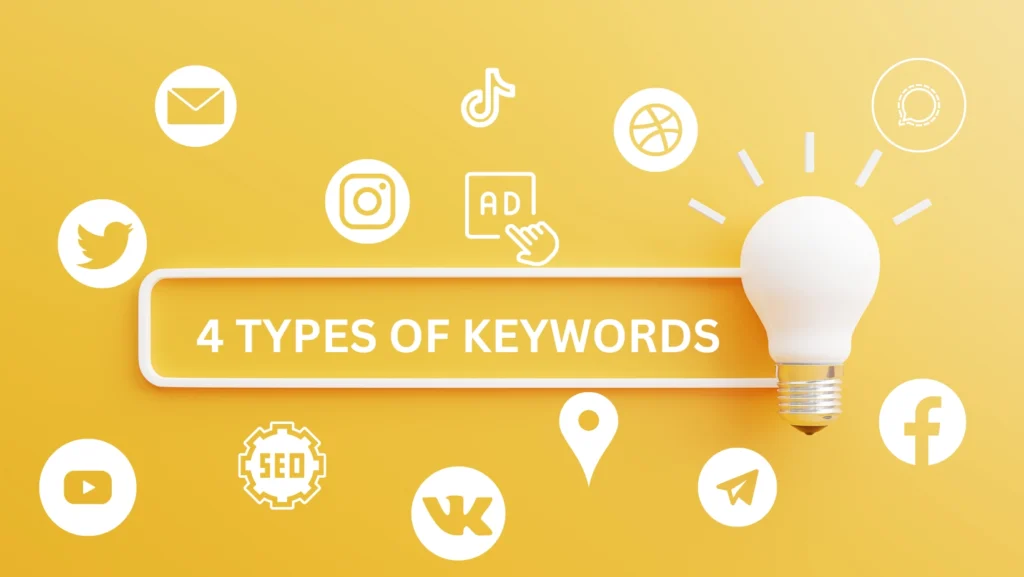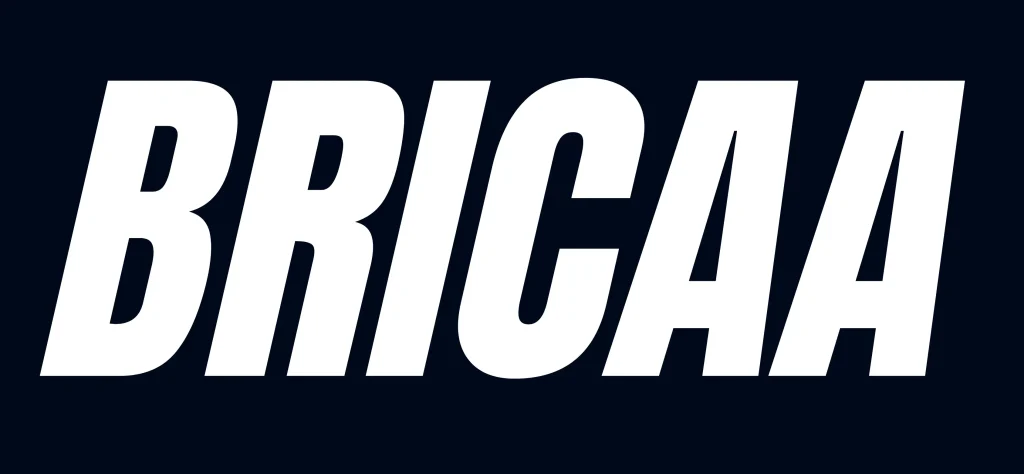Table of Contents
ToggleHow would playing with 4 types of keywords in digital marketing makes you the ace of the game?
Targeting keywords and the intent to use them at the right place to support your content and finding opportunities in linking them with the pillar content is the skill you need to excel. To attain experience in using these 4 types of keywords one has to be spending time on keyword research and that exercise makes you good at using different types of keywords in digital marketing. Today there are a lot of methods we can use to make keyword selection and keyword research simple by using the power of artificial intelligence in digital marketing.
When it comes to digital marketing and online marketing these 4 types of keywords play a vital role, and these keywords are called:
Informational keywords – Keywords that help to bring information that is general in nature or a broad idea on a specific query.
Navigational keywords – Keywords that are used to find specific webpages or geography-based searches to understand more about the specific query.
Commercial keywords – keywords that are used to get results of specific brands, products, or services to have a focused understanding.
Transactional keywords – Keywords that are used when a person takes a decision on buying a product or taking an action.
Using and optimizing the 4 types of keywords in the content and ad copies a digital marketer or an online business can effectively reach the targeted audience and achieve their marketing intentions.
Let’s find out how these 4 types of keywords work
Informational intent keywords
Informational intent keywords are phrases or searches that bring out a user’s intention to absorb information on a specific topic or item. These keywords are used to create content that helps to address the interest of the audience which they want to target
Addressing a few examples of informational intent keywords
- What is
- How to
- Tips for
- Benefits of
- Guide to
- Learn about
- Definition of
- Examples of
- Reasons why
When a person is using informational keywords, it is understood that the particular keyword is used to derive educational or informational content on a specific product or service. The informational keywords can be directly connected to knowledge authority. These keywords are used for a broader search or an initial level of screening.
We also need to understand, most of the search queries are targeted based on informational and commercial intent keywords. Most of the cases query seekers require informational as well as product-based, services related to a particular topic. Generally, content creators and markets should address both the informational and transactional needs of the target audience.
Navigational Intent Keywords
Navigational intent keywords help a user to find a particular destination online or website. These are the typical keywords individuals use to access a specific website, Social media profiles, or other online resources.
Addressing a few examples of navigational intent keywords
These keywords are used when a person’s intent is to find a specific website or online resource, He or she doesn’t want to surf the whole information but rather wants a focused search on a particular topic. Navigational intent keywords are mainly used by business houses and marketers to strengthen their online presence and make it easier for users to find their website, content, or social media profiles.
For example, if a user wants to have immediate access to apple, the user can search for apple’s website or online resources so apple can do a proper optimization based on the navigational intent keyword and ensure that they appear in SERP based on that keyword. Doing this, it is easier for a user helps to improve their online presence and visibility and can attract buyers.
Commercial Intent keywords
An action that is taken by a person before buying a product or service. But he or she hasn’t decided to buy that specific product or service. In this particular scenario, it is considered, this person is in the middle of taking a buying decision and they are spending time on the web for finding information to finalize the decision.
Commercial intent keywords are one which indicates that the user’s intention is to make a buy or decide to engage in a transaction. These users are considered to be very important because they are very near to taking a decision. Business optimizes their content with commercial intent keywords to attract customers to are planning to take an action soon.
Addressing a few examples of commercial intent keywords
- Buy
- Purchase
- Order
- Shop
- Discount
- Coupon
- Sale
- Best price
- Deal
- Free shipping
Incorporating these keywords can give more visibility for the content directly to the type of customers who are about to take an action or doing final research before buying a product.
Transactional intent keywords
Transactional intent keywords are very important phrases or words in 4 types of keywords or in the whole of digital marketing because here the main intention of the user is to purchase a product or service. It means he or she has accumulated all the knowledge and decision to pick a product or service.
Addressing a few examples of transactional intent keywords
- Buy
- Purchase
- Order
- Sign up
- Subscribe
- Download
- Book
- Reserve
- Get a quote
- Add to cart
Transactional intent keywords are very powerful in 4 types of keywords. As these keywords are mostly decision-making terms or phrases it is considered to be the most important keywords to get a final call from the user side. Mostly the users using these keywords would become the customers of that business. Thus, companies like to use transactional keywords in their online content. Also, it helps the users to reach their destination fast to take an action.
We can say the whole world of online or digital marketing is the game of arranging, optimizing, and bidding on these 4 types of keywords. In simpler words, 4 types of keywords are the axle that balances the whole of online marketing.


